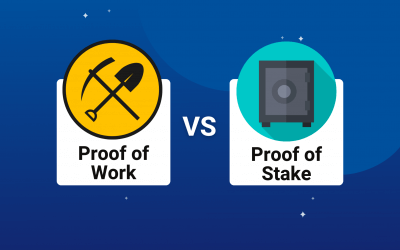Delving Into The Safety And Legality Of Bitcoin

Key Takeaway:
- The legal status of Bitcoin and other cryptocurrencies remains unclear in many jurisdictions, making it difficult for regulators and investors to navigate the market.
- Regulators face significant challenges in defining and regulating crypto assets, as they are decentralized, operate on a global scale, and can be difficult to categorize within existing legal frameworks.
- The lack of clarity around the legal status of crypto assets can leave investors vulnerable and businesses at risk, highlighting the need for greater regulatory clarity and investor protection measures.
Introduction
As we explore the world of Bitcoin, it is crucial to understand its safety and legality. Bitcoin is a decentralized digital asset that allows for secure and swift transactions. Its legality varies across countries, and its safety is dependent on the measures taken by its users to protect their private keys. The use of Bitcoin has exploded in recent years, and it is vital to have a fundamental understanding of its functionality and safety measures. Let’s dive deeper and unravel the intricacies of Bitcoin’s safety and legality.
Bitcoin’s unique structure and decentralized nature have contributed to its immense popularity in recent years. The cryptocurrency operates on blockchain technology, which enables transparency and immutability, making it secure and tamper-proof. However, Bitcoin’s decentralization also means that it is not regulated by a central authority, making its legality ambiguous in some regions. Due to its anonymous transactions and lack of regulation, Bitcoin has become a preferred payment method for illicit transactions.
It is important to note that Bitcoin’s safety is primarily dependent on the security measures taken by its users. Bitcoin wallets use private keys to access their cryptocurrencies. Therefore, if an unauthorized party gains access to a user’s private keys, they can steal their funds. To prevent this, users must take measures such as using multi-factor authentication, creating secure passwords, and avoiding public Wi-Fi to protect their private keys.
Pro Tip: When using Bitcoin, take necessary precautions to safeguard your private keys as they are the key to ensuring the safety of your funds. Use multi-factor authentication and create strong passwords to avoid unauthorized access.
Current Landscape of Crypto Regulation
As someone who has invested in Bitcoin, it’s important for me to stay up-to-date on the safety and legality of this cryptocurrency. In recent years, there has been a lot of buzz around the current landscape of crypto regulation, with various governments introducing proposals and legislation.
In this section, we’ll take a closer look at what’s happening in this space. We’ll explore the European Union’s proposed Markets in Crypto Assets (MiCA) Legislation, as well as the UK’s recent crypto regulation proposals. We’ll also touch on the legal status of digital assets in the US and the challenges regulators face when it comes to defining and regulating cryptocurrency.
Markets in Crypto Assets Legislation
The regulatory framework governing the markets in crypto assets (MiCA) legislation is a crucial aspect of the cryptocurrency industry. MiCA will update existing regulations on decision-making bodies, capital requirements for cryptocurrencies, and asset reserve ratios. The proposed regulation will increase visibility and accountability levels while ensuring that market participants align their operations with transparent and well-understood rules.
MiCA’s primary objective is to usher in a new wave of security for the consumers involved in cryptocurrency trading. Regulators aim to ensure that cryptocurrencies’ distribution and safekeeping are legally compliant, protect against fraud, and safeguard investor rights. Additionally, regulators seek to create an enabling environment that encourages investment in these digital assets by providing clarity in the legal framework.
In contrast to current attempts at cryptocurrency regulation in other regions, MiCA’s focus on creating a comprehensive regulatory structure holds much promise. Implementation and enforcement pose significant challenges across different jurisdictions due to local laws’ heterogeneity; however, it sets a critical precedent for future regulation.
The lack of clarity around legal status has led to numerous scams where investors have lost millions of value from fake crypto products. In 2017, OneCoin duped thousands out of $4bn worldwide before US investigators charged its founders on money laundering charges related to alleged fraud.
Overall, MiCA marks a significant effort by regulators towards increased consumer protection through appropriate level regulatory guidelines. This should foster trust among investors while validating existing cryptocurrency practices in Europe through proper laws and investor protection. Britain wants a piece of the crypto pie, but will its regulation proposals make or break the industry?
UK’s Crypto Regulation Proposals
The UK’s proposed regulatory changes to its crypto landscape aim to provide greater clarity and security for investors and businesses. These proposals include strengthening anti-money laundering (AML) measures, implementing strict KYC procedures, and ensuring compliance with existing financial regulations. The British government also aims to establish a regulatory framework that is sufficiently flexible to accommodate future innovations in the space.
Furthermore, the proposed regulation seeks to protect consumers from unscrupulous actors by mandating third-party custody services and requiring licensing of all crypto service providers. This legislation represents a significant step forward for the UK in upgrading its crypto ecosystem while demonstrating leadership in both financial innovation and consumer protection.
A unique aspect of the UK’s approach is that it seeks input from a wide range of stakeholders across different sectors before finalizing these proposals. This consultative process will ensure that the new regulations are tailored to meet market needs while promoting innovation.
Pro Tip: As the crypto industry continues to evolve rapidly, keeping abreast of regulatory developments is critical for all participants in this exciting field.
Uncertainty around crypto regulation in the US leaves digital assets in a legal limbo, causing confusion for investors and businesses alike.
Legal Status of Digital Assets in the US
The legal status of digital assets in the US is a complex and evolving topic. Actions by regulatory bodies and courts serve as indicators, but there is no clear federal regulatory regime in place for cryptocurrencies.
Currently, the SEC views many cryptocurrencies as securities subject to existing securities laws such as registration requirements. The CFTC considers virtual currencies to be commodities while FinCEN registers cryptocurrency exchanges as money services businesses (MSBs).
Furthermore, court decisions have also varied across jurisdictions on how cryptocurrencies should be treated under federal law. Some judgments hold that they are commodities while others classify them as securities.
It’s worth noting that individual states in the US have proposed or implemented their own regulations around cryptocurrency, adding another layer of complexity to an already fragmented regulatory landscape.
Pro Tip: Keep up-to-date with the latest developments from regulators at both the state and federal level to ensure compliance with any future legislation.
Regulating crypto assets is like trying to catch a greased pig at a BBQ without ruining your outfit – tricky and messy.
Challenges facing regulators in defining and regulating crypto assets
The regulatory landscape surrounding crypto assets presents several obstacles. Defining and regulating crypto assets pose significant challenges for regulators globally. The lack of a uniform definition of these assets makes it challenging to regulate them effectively, given their decentralized and volatile nature. Additionally, identifying illegal activities, such as money laundering and terrorist financing, remains one of the biggest challenges facing regulators in defining and regulating crypto assets.
Furthermore, the global lack of legal clarity regarding cryptocurrency limits regulators’ ability to protect investors from potential risks. Current regulations struggle to keep up with quickly evolving technology trends further complicating the regulatory aspect. The need for more comprehensive legislation within the crypto space is essential to avoid further market abuse, criminal activity or overall chaos.
It is vital to implement strong regulatory frameworks worldwide to minimize fraud within unregulated spaces. Clarifying the legal status of these digital currencies would establish safeguards that could help protect vulnerable but interested investors from potential harm arising from fraudulent investments. Regulators must take swift but careful action to address these concerns before fraudulent practices become even more widespread.
Ireland’s legal stance on crypto leaves investors in the dark, with a lack of dedicated regulation and a patchwork of existing laws.
Legal Status of Cryptocurrencies in Ireland
As someone who is interested in investing in cryptocurrencies, I’ve always wondered about the legal status of these assets. In Ireland, the lack of a dedicated domestic regulatory regime for cryptocurrencies can make it difficult for investors to feel completely safe. In this section, we’ll explore the legal status of cryptocurrencies in Ireland, including consumer warnings and court judgments. We’ll also take a closer look at existing laws and regulations applicable to crypto assets. By understanding the current legal landscape surrounding cryptocurrencies in Ireland, investors like myself can make more informed decisions when it comes to buying and selling these assets.
Lack of Dedicated Domestic Regulatory Regime
The absence of a specific regulatory framework in Ireland for crypto assets has raised concerns. There is a lack of clarity over the legal status of cryptocurrencies, which has caused challenges for both businesses and regulators. Consumer warnings have been issued by the Central Bank of Ireland, and court judgments have highlighted that digital currencies are not recognized as legal tender or money. Despite relevant regulations being put in place to manage anti-money laundering (AML) and counter-terrorism financing (CTF), there is no dedicated domestic regulatory regime for cryptocurrencies.
This lack of clarity around the legal status of crypto assets poses significant implications for businesses, especially startups. It can lead to vulnerability, high risk, and loss of investor trust due to fraudulent activities in the currently unregulated space. The uncertainty also jeopardizes investors’ protection against potential scams like Ponzi schemes, etc.
To address these concerns, it is imperative to take proactive steps towards formulating reliable regulatory oversight on cryptocurrency transactions. As cryptocurrencies gain popularity year after year, global legislators must collaborate closely to create unified legislation aimed at safeguarding consumer interests and promoting investor confidence. Without proper guidelines governing the industry’s operation operations, we risk alienating credible stakeholders who seek legitimacy in an otherwise up-and-coming field.
Consumers may get a wake-up call before they hit snooze with court judgments on crypto assets in Ireland.
Consumer Warnings and Court Judgments
The legal status of cryptocurrencies in Ireland is ambiguous, as there is a lack of dedicated domestic regulatory regime. Regulators have issued warnings to consumers about the risks of investing in digital assets and court judgments have been made on cases involving fraud and money laundering related to cryptocurrencies. However, there are no specific laws or regulations applicable to crypto assets, leaving investors vulnerable to potential scams and businesses uncertain about their legal obligations.
This ambiguity around the legal status of crypto assets has significant implications for both investors and businesses. It can result in a lack of investor protection and potential business vulnerability, as companies that deal with cryptocurrencies may not be following proper regulations. Courts may also struggle with interpreting existing laws to apply them to cryptocurrency-related cases.
Crypto regulation is still a work in progress globally, with the EU implementing Markets in Crypto Assets (MiCA) legislation as an attempt to establish a regulatory framework for crypto assets. MiCA’s role will be crucial in ensuring regulatory compliance across all member states. Limiting cryptocurrency fraud in the currently unregulated space will require further research into the safety and legality of bitcoin.
In light of these challenges facing regulators, it is essential for consumers and businesses alike to remain vigilant about the legal status of cryptocurrencies and seek appropriate advice before investing or engaging in transactions involving digital assets. The fear of missing out should not override the importance of making informed decisions based on accurate information.
Deciphering the legal jargon surrounding crypto assets is like trying to crack a code with a dictionary written in a foreign language.
Existing Laws and Regulations Applicable to Crypto assets
The legal framework surrounding crypto assets is still unclear in many countries, including Ireland. However, existing laws and regulations applicable to crypto assets include the European Union’s anti-money laundering legislation, consumer protection laws and tax laws. Despite this, there is no dedicated regulatory framework for digital assets in Ireland.
The lack of regulatory clarity can leave investors vulnerable while businesses face uncertainties around compliance. Nevertheless, courts have utilized existing legal remedies to address disputes relating to cryptocurrencies. For instance, judgments and warnings issued by the Central Bank of Ireland serve to protect consumers from potential risks posed by crypto-assets.
Pro Tip: Businesses and investors should remain aware of the evolving legislative landscape concerning digital assets in Ireland and other jurisdictions where they operate to protect themselves from non-compliance issues.
Without clear legal status, investment in crypto assets remains a high-risk gamble for both investors and businesses alike.
Implications of Lack of Clarity Around Legal Status of Crypto Assets
As a cryptocurrency enthusiast, I have been following the safety and legality concerns around crypto assets, particularly Bitcoin, quite closely. The lack of clarity around the legal status of cryptocurrencies has significant implications that need to be discussed. In this segment, I want to touch upon two sub-sections:
- Investor protection and business vulnerability
- The adaptation of existing legal remedies by courts
These sub-sections are crucial to understand the challenges the cryptocurrency industry is facing in terms of regulations and legal frameworks. Let’s delve into this topic to gain a deeper understanding of where we stand when it comes to the safety and legality of Bitcoin.
Investor Protection and Business Vulnerability
The lack of clarity around the legal status of crypto assets poses a significant challenge to investor protection and business vulnerability. Due to the absence of blockchain-specific regulations, investors and businesses may fall victim to fraudulent activities within cryptocurrency markets.
Moreover, without proper guidelines, regulators may have limited capability in enforcing compliance amongst crypto exchanges.
To mitigate risks associated with crypto trading, lawmakers need to establish clear regulatory regimes for digital assets. Creating more robust regulatory frameworks that prioritize investor protection would reduce business vulnerability whilst increasing confidence in the market.
Furthermore, creating stringent industry standards or implementing self-regulation mechanisms by cryptocurrency firms could also serve as an additional layer of security for investors.
These suggestions would provide a safe and legitimate marketplace for investors and traders while reducing illicit activities in the digital asset space; ultimately establishing a level playing field where everyone can participate regardless of experience or background.
Courts face the challenge of adapting old laws to new technology, like using a horse and carriage to enforce traffic violations in a world of self-driving cars.
Adaptation of Existing Legal Remedies by Courts
Courts are adapting the current legal remedies to address issues surrounding the legal status of crypto assets. This is necessary due to a lack of dedicated regulatory regimes and perceived investor protection vulnerabilities within the industry. Although there have been consumer warnings and court judgments in Ireland regarding fraudulent schemes involving digital assets, existing laws and regulations are still applicable in cases where cryptocurrencies are utilized for illegal purposes. Courts are taking unique measures to address these challenges, utilizing traditional law while exploring new adaptations to incorporate technological advancements.
For instance, a recent case involving the theft of bitcoin from a business was resolved using traditional legal recourse, where the victims were granted an injunction against the thief to freeze their account; however, innovative solutions such as blockchain forensic analysis were also applied to trace the stolen bitcoins’ whereabouts. As seen in this example, courts must continue developing adaptive responses that can accommodate evolving technologies used in cryptocurrencies while upholding justice and protecting investors’ rights.
The future of crypto regulation is uncertain, but important steps like MiCA and limiting fraud can help ensure compliance and safety in the unregulated space.
Future of Crypto Regulation
As I continue my research on the safety and legality of bitcoin, it’s important to consider the future of crypto regulation. Regulatory bodies are constantly updating their frameworks to promote transparency and limit fraudulent activity in the crypto space. In this section, we’ll evaluate the regulatory landscape for crypto assets in the EU and the impact of MiCA in ensuring regulatory compliance. Additionally, we’ll explore the need to limit crypto fraud in the currently unregulated space, and the potential for future regulations to be implemented. As the crypto market continues to gain footing, awareness of the legal and regulatory aspect of crypto assets will be essential to users and investors alike.
Regulatory Landscape for Crypto Assets in the EU
The current regulatory landscape for crypto assets in the EU is rapidly evolving, with several recent legislative proposals aimed at governing and regulating the digital asset space. One such proposal, the Markets in Crypto Assets (MiCA) legislation, seeks to provide a comprehensive regulatory framework for all crypto assets across member states. MiCA would require licensing and authorization for all crypto-related services and provide greater investor protection measures. Furthermore, individual member states have put forth their own proposals, such as the UK’s recent consultation paper on regulating cryptocurrencies. Despite these efforts, regulators face challenges in defining and regulating crypto assets due to their decentralized nature and lack of uniformity.
Unique details about the regulatory landscape for crypto assets in the EU include increasing scrutiny around stablecoins and cryptocurrencies that are pegged to traditional currencies. There are also discussions around potential limits on cryptocurrency transactions in order to prevent money laundering and terrorist financing.
In Ireland, there is currently no dedicated domestic regulatory regime for crypto assets. However, existing laws apply to digital currencies, and authorities have issued warnings regarding the risks associated with investing in them. Recent court judgments have also clarified legal perspectives on cryptocurrency ownership and liability.
A real story that highlights the importance of clarity around the regulatory landscape for crypto assets took place in 2018 when a major Irish cryptocurrency exchange collapsed due to fraud committed by its founder. The lack of clear regulation made it difficult for investors affected by the fraud to seek legal remedies against the exchange or its founder.
MiCA may just be the superhero we need to ensure regulatory compliance in the world of crypto.
MiCA’s Role in Ensuring Regulatory Compliance
The Markets in Crypto Assets (MiCA) legislation plays a crucial role in ensuring regulatory compliance within the crypto industry. MiCA proposes a harmonized framework for regulation across the European Union, thereby offering businesses greater clarity and certainty around legal requirements for cryptocurrencies. This helps prevent fraud and protect investors, while also facilitating innovation and growth in the sector.
MiCA’s role in ensuring regulatory compliance is particularly significant as the global cryptocurrency market continues to grow rapidly, with an estimated market capitalization of over $2 trillion. With this growth has come increased scrutiny from regulators regarding issues such as money laundering, terrorist financing, and consumer protection. The flexible and adaptability of MiCA allows regulators to address these concerns at both the regional and national levels by establishing a comprehensive regulatory regime that fosters transparency and accountability.
Moreover, MiCA provides a reliable and standardized set of rules that can help businesses operating within the crypto industry stay on top of regulatory obligations. It also sets standards for minimum business conduct requirements such as capital adequacy ratios, safekeeping measures, and customer due diligence procedures to ensure customer protection and fair play within operations.
With increased adoption of cryptocurrencies across EU regions, harmonization of regulations is key to unlocking the potential benefits of crypto investments. For example, it enables cross-border activities between EU member states without repetitive assessment or application processes, allowing innovators to better navigate through different legal systems throughout Europe.
Despite challenges faced by regulators in defining regulations on these quickly evolving assets comprehensively there are little doubts that expanding on existing regulations will undoubtedly help provide some needed guidance on regulated frameworks regarding innovation around digital assets.
Limiting Crypto Fraud in Currently Unregulated Space
The currently unregulated space within the crypto industry puts investors at risk of crypto fraud. Establishing clear regulations is essential in limiting such incidents. The lack of uniformity and differences in approaches between different countries’ laws create challenges for regulators.
To efficiently limit crypto fraud, there needs to be a cohesive global approach to regulatory enforcement in the crypto industry. Regulators need to work together to improve transparency, reporting standards, and compliance mechanisms.
Furthermore, regulating Decentralized Finance (DeFi) platforms will play a critical role in this effort as DeFi is often considered an area where bad actors may exploit loopholes or perform illicit activity. Dealing with this issue will require many resources and efforts from both regulatory authorities and blockchain companies operating within the cryptocurrency ecosystem as it attempts to balance innovation with system robustness.
Cryptocurrency has not been without its controversies and high-profile incidents such as hackings that have caused losses for individuals. To limit crypto fraud, transparency must be prioritized while implementing regulations that allow businesses to thrive without putting consumers at risk.
Five Facts About the Safety and Legality of Bitcoin:
- ✅ The EU recently approved the Markets in Crypto Assets (MiCA) legislation, which establishes common rules for the supervision of crypto assets and cryptocurrencies. (Source: William Fry)
- ✅ The legal status of cryptocurrencies in Ireland remains unclear, with no dedicated regulatory regime in place. (Source: William Fry)
- ✅ Regulators face challenges in reconciling legal certainty with the libertarian roots of crypto assets, balancing innovation, legal risk, and consumer protection. (Source: William Fry)
- ✅ Coinbase recently filed an action in US federal court against the SEC to receive clarity around digital assets being identified as securities. (Source: William Fry)
- ✅ The lack of clarity around the legal status of crypto assets limits legal protections, leaving investors and businesses vulnerable to financial crime. (Source: William Fry)
FAQs about Delving Into The Safety And Legality Of Bitcoin
What is the MiCA legislation and how does it affect the regulation of crypto assets across Europe?
The Markets in Crypto Assets (MiCA) legislation is a recent EU initiative that aims to establish a set of common rules for the supervision of crypto assets and cryptocurrencies throughout the region. This legislation will help provide legal clarity and consumer protection in a currently uncertain and unregulated space. It will come into effect in 2024 and will require all crypto asset service providers to be registered with their national regulatory authorities.
What are the UK’s proposed crypto regulation measures and how do they differ from MiCA?
The UK has recently announced its own proposals for crypto regulation, following the approval of MiCA in the EU. These measures aim to provide greater legal certainty and investor protection in the crypto space. However, unlike MiCA which will come into force in 2024, the UK proposals are still in the consultation phase and are yet to be finalized.
What is the current legal status of digital asset securities in the US?
The legal status of digital asset securities in the US is currently a subject of debate and uncertainty. Crypto exchange Coinbase recently filed an action in federal court against the Securities and Exchange Commission (SEC) to receive clarity around the issue. The lack of clear and workable regulatory regime has led to a dysfunctional market in digital asset securities in the US.
How do regulators balance innovation, legal risk and consumer protection when defining and regulating crypto assets?
Regulators face a delicate balance between promoting innovation and ensuring legal certainty while also addressing perceived threats to monetary sovereignty and financial stability. While it’s important to provide flexible definitions and regulations that allow for innovation, it’s equally crucial to provide firm legal safeguards for consumers. This requires a nuanced approach and close collaboration with industry stakeholders.
What is the current legal status of cryptocurrencies in Ireland?
The legal status of cryptocurrencies in Ireland remains unclear, and there is currently no dedicated domestic regulatory regime regarding them. However, this will change with the enactment of the MiCA legislation in 2024. The Irish courts have yet to hand down a written judgment on whether cryptocurrencies are considered property, which remains unresolved. However, the courts have been proactive in adapting traditional legal remedies and existing legislation to address issues involving cryptocurrencies.
What are the implications of the lack of clarity around the legal status of crypto assets?
The lack of clear legislation and regulation around crypto assets can limit legal protections and remedies available to investors and businesses, which in turn can undermine consumer protection and market integrity. This makes them vulnerable to instances of crypto or financial crime. However, existing legal remedies can be adapted to help protect these rights, and the forthcoming MiCA legislation will likely close legal loopholes and increase regulatory compliance.
Where to buy cryptocurrency in Canada and US?
Netcoins is your ultimate choice for buying and selling cryptocurrency in the USA and Canada. Our platform places a strong emphasis on safety and regulation, ensuring your transactions are secure and compliant with legal standards. Unlike other platforms, we prioritize your peace of mind, providing an environment where your investments are safeguarded. Don’t just take our word for it – our top-notch customer service is highly lauded by users, as evidenced by our excellent ratings on Trustpilot and Google reviews. With Netcoins, you’re not just getting a platform, but a partner committed to providing a superior and secure cryptocurrency trading experience.
Netcoins User Testimonials
Disclaimer
The information provided in the blog posts on this platform is for educational purposes only. It is not intended to be financial advice or a recommendation to buy, sell, or hold any cryptocurrency. Always do your own research and consult with a professional financial advisor before making any investment decisions.
Cryptocurrency investments carry a high degree of risk, including the risk of total loss. The blog posts on this platform are not investment advice and do not guarantee any returns. Any action you take based on the information on our platform is strictly at your own risk.
The content of our blog posts reflects the authors’ opinions based on their personal experiences and research. However, the rapidly changing and volatile nature of the cryptocurrency market means that the information and opinions presented may quickly become outdated or irrelevant. Always verify the current state of the market before making any decisions.
Related Posts
How Ethereum Smart Contracts Work
How Ethereum Smart...
What are Cardano Native Tokens?
What are Cardano Native...
What are Cardano Smart Contracts?
What are Cardano Smart...
Who Accepts Solana as Payment?
Who Accepts Solana as...
Why the AVAX Crypto Leaks Matter to the Avalanche Community
Why the AVAX Crypto...
Who Founded Cardano? A Quick Guide to Charles Hoskinson & ADA
Who Founded Cardano? A...
Crypto Oracles in 2023: Will Chainlink Hold the Top Spot?
Crypto Oracles in 2023:...
Proof of Stake vs. Proof of Work
Proof of Stake vs....
What can you use Cardano (ADA) for in 2022?
What can you use...






